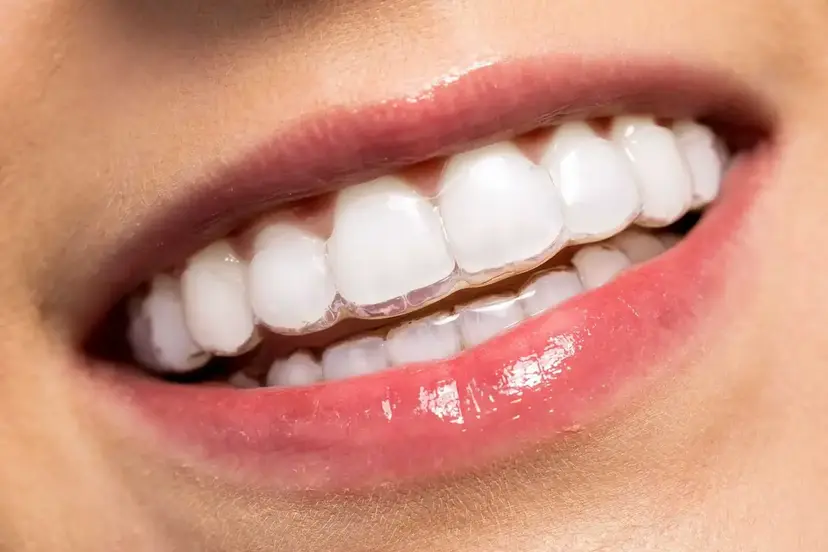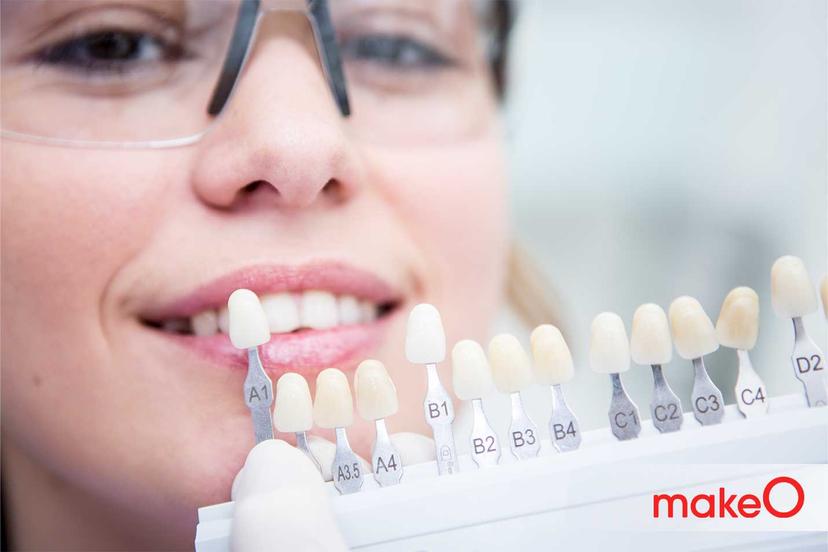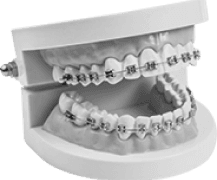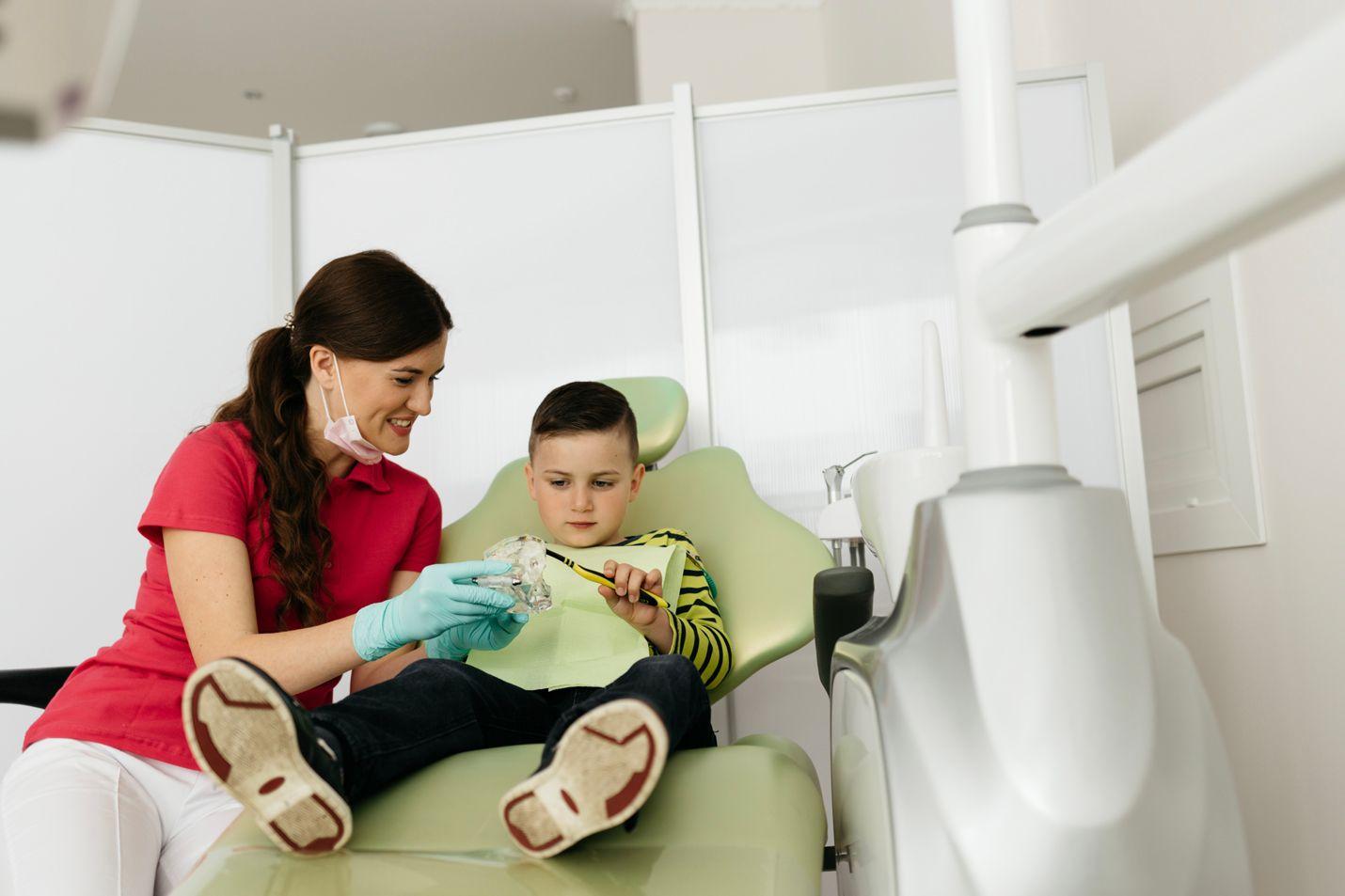MakeO blog
Teething is an important milestone in the growth of your little one. This natural process marks an exciting phase in your baby’s life as they develop a curiosity for all things and people and look to chew anything and everything! But this phase does come with its own sets of challenges, both for the child and the parent. Some of them include swollen gums and infant fever with teething. Learning about teething and how to navigate it can help you support your kids while they go through this phase and help you cherish it better!
In this article, we’ll take you through all the basic knowledge you need to understand the phase of teething in babies.
Signs and Symptoms of Teething
Babies tend to have teeth around the age of 6 months. This number is not set in stone, so you can expect teething to begin anytime between the period of 4-7 months. Some noticeable symptoms or signs of teething to keep a look out for are:
- Excessive drooling
- A small rise in temperature or a low-grade teething fever
- Tender, swollen gums
- Increase in urges to chew things
- A reduced appetite
- Behavioural changes like fussiness.
Catching these signs early on can help you comfort them better as they take on this new journey!
Infant Teething and Fever: Does Teething Cause Fever in Babies?
Infant fever and teething have long been thought to have a connection between them. Many parents believe that teething can cause high teething fevers in babies, but this is simply not true! Teething is a natural process that may rarely cause a spike in temperature, which is also known as a low-grade fever.
Typically, babies have a stronger immunity for the first six months due to their mothers. Post this, their immunity takes a hit and this coincides with the start of teething. This is why some babies may face a low-grade fever. However, if you notice your child’s temperature rising above 100 degrees, it may be due to a bacterial or viral infection and not a ‘teething fever.’ So, it’s wise to visit a healthcare professional immediately to treat your child and nurse them back to health.
Timeline of Teething
The timeline of the teething process is not so complicated. It begins with the lower front incisors and is followed by the upper front teeth. This process begins at the age of 6 months and by the age of 3, your toddler will mostly have around 20 baby teeth! These numbers are the average and each baby has their own unique journey, so there’s no need to worry if your child’s teeth show up a bit earlier or a bit later than mentioned!
Tips for Soothing Teething Discomfort
To help your baby through this phase, here are some handy tips:
- You can offer them soft washcloths or other safe things to chew on when they feel the urge to do so
- You can give them gentle gum massages to give them relief in times of discomfort
- Ensure that they have a healthy diet and offer them cooler foods to chew easily
- When in pain or uncomfortable, you can use tactics like playing or cuddling to distract and comfort them
Oral Care for Teething Babies
Oral care is always important but even more so during the teething period. Baby teeth hold space to make way for permanent teeth and damage or injury in even a single baby tooth can lead to infection and damage to the permanent tooth underneath! This is why it’s crucial to clean your baby’s gums with a clean, soft, cloth even before the growth of teeth. Once the baby's teeth begin to erupt, you can teach them how to brush them gently with soft-bristled brushes and rice-grain-sized amounts of fluoride toothpaste.
Teething Complications
While uncommon, in case your baby shows complications due to teething such as prolonged discomfort, excessive irritability, loss of appetite, or high temperatures, it is time to visit a doctor and get professional help. They can not only help you understand your baby’s issues but help you navigate them better.
Conclusion
Teething is a natural process and every baby has a unique journey during this phase. As young parents, remember to stay informed, patient and attentive towards their needs. Embrace this phase with a smile, and it'll pass before you know it!
As a rule, when it comes to teething, make sure to prioritise their oral care and make it a habit for them to keep their teeth clean and healthy. As their baby teeth get replaced with permanent teeth, you can look to introduce makeO toothsi’s excellent range of oral care products such as our makeO toothsi electro and our smart water flosser to enhance their oral hygiene. Lastly, worry not if your child ends up having a misalignment! You can always get their smiles corrected comfortably in the span of a few months with makeO toothsi clear aligners!
FAQs
Can teething cause a fever in babies?
Teething fever is a myth. Teething may cause a slight spike in temperature which can be classified as a low-grade fever however, it’s harmless. In case you notice your baby getting a fever during this stage, it can be due to a viral infection.
What are common signs of infant fever and teething?
Some common occurrences during the teething phase are increased drooling, irritability, increased urges to chew on things and swollen gums. If you are a new parent, make sure to keep an eye on such signs and head to a doctor if they are worrying.
How can I differentiate between infant fever and teething and other illnesses?
Teething fevers are generally low-grade fevers that don’t pose a risk to your baby’s health. If your baby does have a higher fever, along with other symptoms such as diarrhoea, it can be due to other reasons such as a bacterial or viral infection.
Is teething with a fever normal?
A mild rise in temperature during teething is normal and can happen to a few babies. But, anything above 100 degrees Celsius is a cause for concern and will most likely be caused by other reasons like a viral infection.
How do I manage infant teething and fever?
For teething discomfort, use teething rings and gentle gum massages. If your baby has a fever, monitor their temperature and consult a paediatrician for high fevers or additional symptoms.
related categories
Related articles

Types of Braces: Removable vs Fixed Braces, Which is Right For You?

This Diwali, Smile Bright With makeO Teeth Whitening Kit

Dr. Pravin Shetty: Pioneer in Lingual Orthodontics & Innovative Smile Solutions
How do I Know I’m the Right Candidate for makeO toothsi Teeth Aligners?

